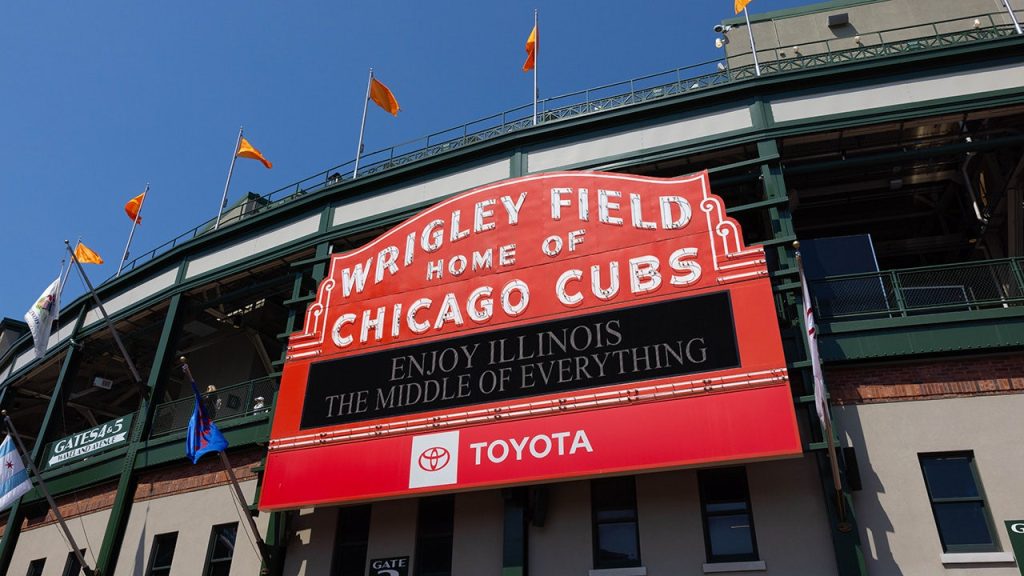Raphael Hammond, a 37-year-old man, has been ordered to remain in custody without bail after he was charged with being a felon in possession of a handgun in connection with a shooting that took place outside Wrigley Field earlier in the month. The incident occurred when Hammond was standing outside a bowling alley across from the stadium, and a masked man jumped out of an SUV and shot at him. Two of Hammond’s friends were injured in the shooting, which led to him running inside the establishment while the attacker got back into the vehicle and fled the scene. Hammond then exited the bowling alley with his own gun and fired shots at the SUV as it sped off.
During Hammond’s court hearing, his attorney, Patrick Boyle, requested home detention, claiming that Hammond had no intention of seeking a confrontation and only acted in self-defense after seeing his friend’s gun on the ground. However, U.S. Magistrate Judge Jeffrey Gilbert determined that Hammond’s criminal history, which includes five felony convictions and multiple incidents of being shot, demonstrated that he poses a significant danger to society. Gilbert emphasized that Hammond’s past indicated a pattern of trouble and violence, and therefore, he should remain in custody without bail.
Prosecutors revealed that the gunman who shot at Hammond outside Wrigley Field remains at large, and the motive behind the attack remains unclear. Despite this, the decision to keep Hammond detained without bail was based on his violent history and potential danger to the community. The judge’s ruling highlights the risks associated with allowing someone with a criminal background and a propensity for violence to be released from custody, especially when their involvement in a recent shooting incident is a cause for concern. By prioritizing public safety and preventing future violent confrontations, the decision to keep Hammond in custody sends a message that such behavior will not be tolerated.
Hammond’s actions following the shooting, where he retaliated by firing at the fleeing SUV, amplified concerns about his potential for violence and propensity for dangerous behavior. This additional act of aggression, paired with his criminal background and history of violent incidents, solidified the decision to deny him bail and keep him in custody. The judge’s assessment that those with a record of trouble are more likely to find themselves in further dangerous situations underscores the importance of addressing such individuals with caution and prioritizing public safety above all else. By keeping Hammond detained, potential risks to society are mitigated and the chances of further violent confrontations are reduced.
The gunman responsible for the shooting outside Wrigley Field remains at large, leaving authorities and prosecutors with unanswered questions about the motive behind the attack and the individual’s whereabouts. While Hammond’s actions in response to the shooting were met with scrutiny and led to his continued detainment, the lack of resolution regarding the shooter presents a challenge in fully understanding the circumstances that led to the incident. Moving forward, efforts to identify and apprehend the unknown assailant are crucial for achieving justice, providing closure to the victims, and preventing similar violent acts from occurring in the future. The unresolved nature of the case highlights the complexities of investigating and prosecuting violent crimes, further underscoring the need for diligence and cooperation in addressing such incidents.


